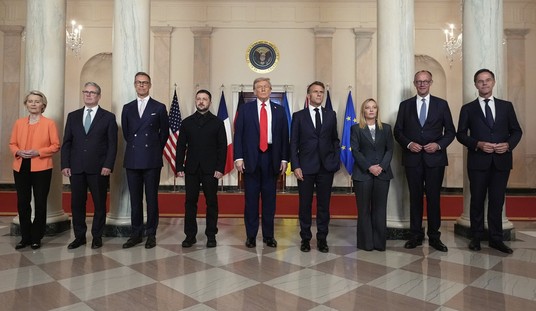Sort of understandable, and not just because Hollywood’s business depends upon knowing how to please Americans emotionally. In the Trump era, every dimwitted politically active celebrity secretly (or not so secretly) believes that they too could parlay their fame into high office with some money, a little luck, and tons of earned media. If the guy from “The Apprentice” can figure out how to get elected president, the guy who plays him on “Saturday Night Live” can in theory figure it out too.
But even beyond individual celebs’ ambitions, I think there’s a suspicion among the political class post-Trump that in an age of ubiquitous media, with voters newly open to flashy yet unconventional candidates in lieu of career politicians, media industries that don’t normally deal directly with electoral politics might have a useful perspective on how to win. If you want to beat a glib, image-obsessed TV star, who better to consult than glib, image-obsessed TV people?
Best of luck to them landing a big name like Robert De Niro to grunt gutturally into a mic about how much he hates Trump. It can’t not work.
“One of the first things we were at least talking about in the beginning meetings was how to improve upon the message as to what does the Democratic Party stand for, what does that represent,” said Andrew Marcus, who owns the television and film company Apiary Entertainment. “When the Republican Party or [President Donald] Trump is able to say ‘Make America great again’ and nobody that I know can tell you what the DNC or any of the leading candidates’ slogans [are], I think that’s a marketing problem.”
Alex Gregory, a writer and producer, said he has lobbied Democrats in their meetings to tie in vitro fertilization to abortion rights debates, while generally encouraging Democrats to adopt “more emotional content” in their messaging.
“It really is focused on … what do we stand for? In some ways, how did we lose?” Gregory said. “It is a moment of soul searching right now, in that we lost to an insane person … and that was more appealing than what we had to offer.”
The journey of a thousand miles begins with this first step: Run someone other than Hillary Clinton. Once they’ve got that straightened out, they’re on their way. As for scrambling abortion debates by introducing IVF into the discussion, that does … not feel like an election game-changer to me, but follow your instincts, I guess. If the goal is to make Democrats more mainstream on that issue, maybe try a rethink on the current party orthodoxy that abortion should be available on demand up until the moment of crowning.
The reason I said up top that consulting Hollywood is only “sort of understandable” is because the current Democratic leadership already shares the same identity-heavy political sensibilities as the entertainment industry. Reaching out to them essentially affirms that the party believes its policies and even its message are fine; all it needs is a little tweak with the ad copy. What they should be focused on are the white working-class voters who drifted from Obama to Trump in 2016 after showing some interest in Bernie Sanders in the primaries. They were the difference in the election, and most of them care more about kitchen-table issues than whatever this month’s progressive hobbyhorse might be. Who’s more likely to have something meaningful to say to, or about, them? A roomful of “Veep” writers or a bunch of middle managers from Bernie 2016?
Also, messaging is overrated. The messenger matters at least as much as the message. Both Mike Huckabee and Rick Santorum ran variations of Trump’s working-class pitch in previous Republican primaries and didn’t get far. Berniemania might have seemed less lovably utopian and more dangerously radical coming from a younger, angrier Democrat. Obama beat the Clinton machine not because his policy platform was dramatically different from Hillary’s — just the opposite — but because he was light years more charismatic and personified a sharp change in direction from the Bush years. You want to beat Trump? Find a stellar, compelling candidate first and worry about the message second. Having a dynamic figurehead can atone for a lot (a lot) of messaging deficiencies.
But maybe the secret is even simpler than that. Modern American politics is driven by negative partisanship; convincing voters that the other candidate is garbage is your best bet for victory. It may well explain how Trump, a phenomenally unpopular candidate himself, was able to squeak by in key Rust Belt states. Populism, “drain the swamp,” celebrity — yeah, yeah, all well and good, but in the end maybe it wasn’t much more complicated than that swing voters loathed and distrusted Hillary Clinton more. If that’s true then positive messaging, even of the kitchen-table variety, will only get you so far. Especially when you’re up against an incumbent president, whose reelection bids invariably turn into referendums on their first term. Every time I see some big-name Dem like Obama or Pelosi encouraging liberal pols to ignore Russiagate and Trump scandals and focus on bread-and-butter like health care, I think it’s good sense and then a little voice reminds me that it contradicts the laws of negative partisanship. Want to beat Trump? Then convince the country that Trump is garbage. Whoever the Democratic nominee is, in all likelihood he or she will be perceived as “Not Trump” by Election Day anyway. Might as well embrace it.
Here’s De Niro apologizing to Canada on Trump’s behalf. Negative partisanship! Although negative partisanship that privileges the feelings of foreigners over those of Americans is not the smartest kind.









Join the conversation as a VIP Member